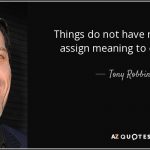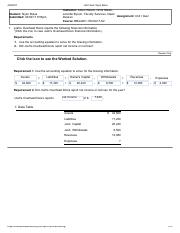
Here are some basic steps to get you started keeping track of your small business’s financial information, generating financial statements, and filing taxes. Remember that if you have employees, you’ll also need to account for payroll tax. If you’re unsure about your tax obligations, you may want to talk to a professional accountant or tax expert account payable example for advice. If you’re already using an accounting software program for small businesses, you may be able to generate these statements automatically using the expense and income information you’ve already entered. Additionally, Taxfyle offers seamless boarding with your existing QuickBooks Online or Xero software to cover your monthly bookkeeping.
What Is Accounting Software?
Reconciling your bank accounts each month is important and should be done regularly. Both the cash account and the accounts receivable account are assets. Because we’re increasing the bank balance, we enter the $200 as a debit to the Cash account, while we credit the accounts receivable account for $200 because the balance will decrease. Even if you’re a sole proprietor, it’s a good idea to open a business bank account. If you’re still not sure what the difference is between a debit or a credit, and couldn’t tell an asset from a liability, accounting software can make your life a lot easier. Using spreadsheet software is the cheapest accounting option (especially if you use a completely free software, like Google Sheets).
Ways To Manage Your Business Accounting
For more information about Expert Assisted, refer to the QuickBooks Terms of Service. There are several different types of accounting, but they can typically be divided into general accounting and financial accounting. The former generally focuses on accurate recordkeeping, while the latter is done to help a business look ahead and plan key expenses and investments accordingly. On its most basic level, 2021 sales tax rates accounting is how a business keeps track of how much money is coming in and going out. Having this information handy and organized is important not only for you as the business owner, but for any external stakeholders who may need to investigate your financial records. To keep your financial records, you’ll need a chart of accounts—a complete listing of every account in your accounting system.

More financial tips

Your profit and loss statement (also known as P&L or an income statement), both for the current month and year-to-date, tells you how much you earned and how much you spent. Comparing your actual numbers to your planned numbers highlights where you may spend too much or not enough. Keep a record of each of your vendors that includes billing dates, amounts due, and payment due dates.
Enterprise resource planning (ERP) software includes all the features of accounting software, plus additional features such as CRM, inventory management and project management. ERP software is typically used by larger businesses while accounting software is more suited for small businesses. If you operate a chain restaurant, for example, choose an accounting software that you can integrate with your in-store point-of-sale (POS) system. Or, if you have a contract construction business or are a wholesaler, look for software that includes inventory management or mileage tracking and invoicing tools, respectively. The software also offers tools for businesses requiring financial compliance such as GAAP, ASC 606 and SOX.
From managing your taxes to generating financial reports, our business accounting software can make running your business easier than ever. Take a look at the accounting duties you will have to manage for your business below. While accounting may not be what motivates you to what is a t account go to work every day, it’s a part of the job. There are daily, weekly, monthly, quarterly, and annual accounting tasks you need to complete to ensure your business’s success. Once you have a business bank account in place, it’s time to connect it to accounting software.
- However, they say that solving an issue can be time-consuming and frustrating.
- All reporting graphs were color-coded with a key for each data point.
- After correctly entering your data, the software guarantees accurate calculations, which provides added comfort in tax season.
- These options were also always available to me wherever I was in the platform via a slide-out left-hand menu.
CPAs can analyze bookkeeping records, help with payroll and taxes, offer financial consulting, and represent you during IRS audits. Companies with little or no inventory and few employees can use inexpensive or free basic accounting software. While business owners can easily implement this affordable software, it may leave you at risk of an IRS audit triggered by inaccurate reporting. Bookkeeping focuses on recording and organizing financial data, including tasks, such as invoicing, billing, payroll and reconciling transactions.
Get your small business on track and move forward toward the goals and financial objectives you have for your company with business accounting principles. The Introduction to Financial Accounting from UPenn will help you learn how to read the three most common financial statements (income statements, balance sheets, cash flow statements). Or learn the basics of bookkeeping with Intuit’s professional certificate.
Odds are you’ll need a Point of Sale (POS) system that works with a cash register and/or a credit card reader. To set this up, you will need to open a merchant account with your bank, which acts as an intermediary between your customer’s card account and your business account. The difference between the two is important to understand; your business’s accounting method will affect cash flow, tax filing, and even how you do your bookkeeping. And when you commingle your personal and business finances, the following problems can arise. Make sure you compare a few options—and take note of requirements such as maintaining a minimum balance—before settling on a bank.
Each report offered a description and useful information to help me interpret the report when I hovered over the question mark in the top corner of each report. I could also access filters on reports by pushing the down arrow at the top right-hand corner of each report. Filters allowed me to sort reports by time period, including a custom date range.
When running a small business, you’ll likely find yourself dealing with a ton of day-to-day administrative tasks like accounting. Accounting and bookkeeping basics you need to run and grow your business. Income statements focus on four key items — revenue, gains, expenses, and losses — which bookkeepers use to calculate net income. Companies typically prepare balance sheets at the end of every quarter, but individuals can prepare them at any time. Assets, liabilities, and shareholders’ equity comprise a balance sheet.
Managing your cash flow is critical, especially in the first year of your business. Forecasting how much cash you will need in the coming weeks and months will help you reserve enough money to pay bills and your employees and suppliers. Plus, you can make more informed business decisions about how to spend your cash.
It’s best to work with a CPA who has experience with clients in your industry. Any CPA should be willing to sit down with you for a free consultation. Follow the steps in this guide, and you’ll be able to build a strong financial foundation. More importantly, you’ll put your business on the path to longevity and financial success.
Creating a budget for expenses like office supplies, inventory and repairs and maintenance can help your business function efficiently. Accurate invoicing is the key to getting paid in a timely and organized manner. Before adding anyone to your payroll, make sure your workers are categorized correctly as either employees or independent contractors. Just like a regular bank, every payment provider will have a different fee structure. Before you commit, make sure you do the math to determine the impact a provider’s fees will have on your bottom line.
Accounting software provides accurate financial reports, allowing you to make informed decisions about your business. This feature helps you identify profitable areas, manage inventory, and address any financial issues promptly. Automating financial processes, such as data entry, reduces errors and saves you time. This allows you to easily manage your business’s finances without the burden of manual bookkeeping. Your accounting software should integrate well with other tools designed to manage your business, such as scheduling or CRM systems. This integration streamlines your operations and keeps all your business data in sync, saving you time.
At Taxfyle, we connect you with licensed, experienced CPAs or EAs in the US. We handle the hard part of finding the right tax professional by matching you with a Pro who has the right experience to meet your unique needs and will file your file taxes for you. Start with the essentials and add more advanced features as needed, without switching platforms. This scalability makes it an all-in-one solution for your accounting needs. Save more by mixing and matching the bookkeeping, tax, and consultation services you need. Small businesses may be able to find a less expensive basic plan, while larger businesses may need to upgrade to a more expensive standard or premium plan.
When we talk about offline payments, we are referring to payments done with a check, or cash. In this case, the two accounts being affected are the owner’s equity account and the cash account. The cash account will be debited by $5,000, whereas the owner’s equity will be credited by $5,000. Recording data correctly is just the first step in doing accounting for your small business. The table below summarizes most of the accounts (and their types) that you might need to use while doing accounting for your small business. You can find the 8 most common accounts that any small business will have to use for their accounting highlighted in blue.
These include NCH, Zoho Books, Kashoo, ZipBooks, Sunrise, GnuCash, TrulySmall Invoices and Wave Accounting. To determine the best accounting software, we meticulously evaluated numerous providers across specific categories. Each software was scored based on its performance in these areas, and these scores were calculated to determine the product’s total score, with a potential maximum of five stars.